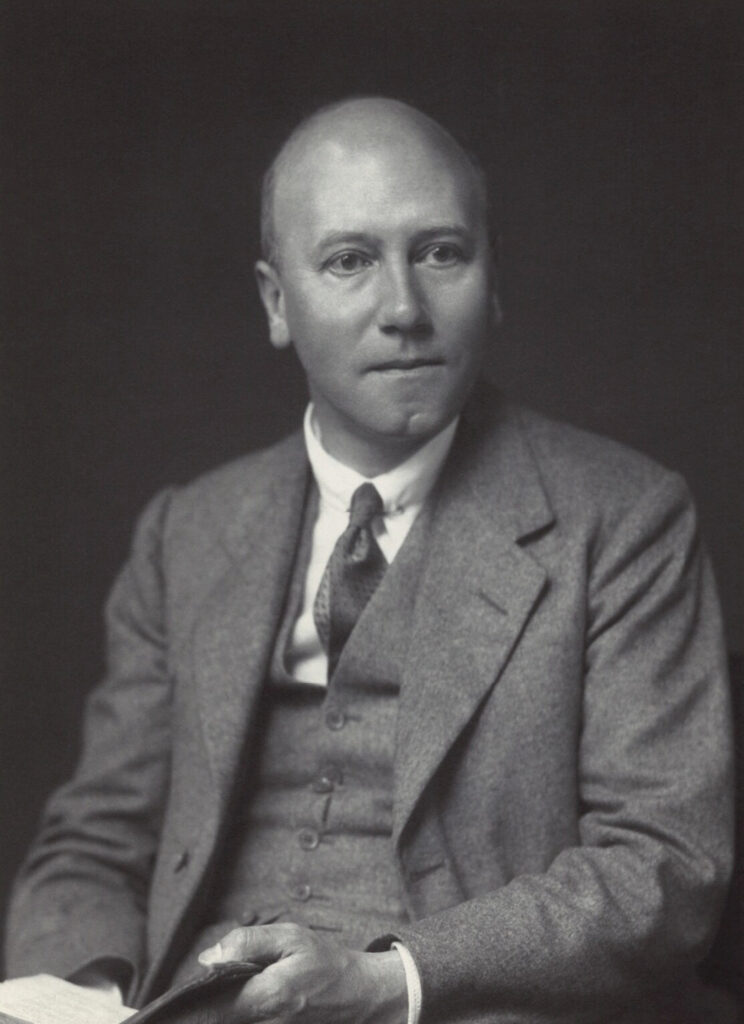Recently, my Lenovo Thinkpad T520 died. Fixing this problem cost me two days of work, and much anxiety and frustration. Since not much information about this particular issue seems to be available online, I thought I should write a post detailing my solution, in the hope that it might help others solve it more quickly and with less stress. It is, of course, possible that the solution won’t work for you, since the problem might be caused by some other factor. It is also possible that the solution will work for you even if you have a different laptop model. Continue reading
Author Archives: Pablo Stafforini
C. D. Broad: a bibliography

Socius, lector, thesaurarii iunioris inter belli
angustias uice functus, moralis philosophiae in
academia professor disciplinae illius alias quoque
partes singulari acumine et diligentia lucidissime
tractauit. Non minus se ipsum quam alios nouerat.
In sermone plus salis quam fellis habuit. Sueciae
amorem prae se tulit. Huic collegio studuit opera
consiliis testamento sustinendo. Vita decessit
A.S.mcmlxxi suae aetatis lxxxiv
This bibliography is based on (1) C. Lewy’s ‘Writings of C. D. Broad, to the end of July 1959’, in Paul A. Schilpp (ed.) The philosophy of C. D. Broad, New York: Tudor Publishing Company, 1959, pp. 833–852; (2) Andrew Chrucky’s Works by C. D. Broad; and (3) my own research online and at various British libraries. It is my best attempt to make Broad’s writings freely available on the web. Corrections and additions are welcome.
Continue readingDerek Parfit: a bibliography

What interests me most are the metaphysical questions whose answers can affect our emotions, and have rational and moral significance. Why does the Universe exist? What makes us the same person throughout our lives? Do we have free will? Is time’s passage an illusion?
- Improving Scanlon’s contractualism, in Markus Stepanians & Michael Frauchiger (eds.), Reason, justification, and contractualism : themes from Scanlon, Berlin: De Gruyter, 2021, pp. 109–117.
- On what matters, vol. 3. Oxford: Oxford University Press, 2017.
- Future people, the non-identity problem, and person-affecting principles, Philosophy & public affairs, vol. 45, no. 2 (Spring, 2017), pp. 118–157.
- Responses, in Simon Kirchin (ed.) Reading Parfit : On what matters, New York: Routledge, 2017, pp. 189–236.
- Conflicting reasons, Etica & politica, vol. 18, no. 1 (2016), pp. 169–186.
- Can we avoid the repugnant conclusion?, Theoria, vol. 82, no. 2 (May, 2016), pp. 110–127.
- Personal and omnipersonal duties, The Harvard review of philosophy, vol. 23 (2016), pp. 1–15.
- Another defence of the priority view, Utilitas, vol. 24, no. 3 (September, 2012), pp. 399–440.
- We are not human beings, Philosophy, vol. 87, no. 1 (January, 2012), pp. 6–28.
- On what matters, vol. 2. Oxford: Oxford University Press, 2011.
- On what matters, vol. 1. Oxford: Oxford University Press, 2011.
- Persons, bodies, and human beings, in Dean Zimmerman, Theodore Sider & John Hawthorne (eds.) Contemporary debates in metaphysics, Oxford: Blackwell, 2008, pp. 177–208.
- Is personal identity what matters?, The Ammonius Foundation, December 31, 2007.
- Kant’s arguments for his formula of universal law, in Christine Sypnowich (ed.) The egalitarian conscience : essays in honour of G. A. Cohen, Oxford: Oxford University Press, 2006, pp. 56–69.
- Normativity, in Russ Shafer-Landau (ed.) Oxford studies in metaethics, vol. 1, Oxford: Clarendon Press, 2006, pp. 325–380.
- Postscript, in Jesper Ryberg & Torbjörn Tännsjö (eds.) The repugnant conclusion : essays on population ethics, Dordrecht: Kluwer, 2004, p. 257.
- Justifiability to each person, Ratio, vol. 16, no. 4 (December, 2003), pp. 368–390.
- What we could rationally will, The Tanner lectures on human values, 2002.
- Rationality and reasons, in Dan Egonsson, Jonas Josefsson, Björn Petterson & Toni Rønnow-Rasmussen (eds.) Exploring practical philosophy : from action to values, Aldershot: Ashgate, 2001, pp. 17–39.
- Bombs and coconuts, or rational irrationality, in Christopher W. Morris & Arthur Ripstein (eds.) Practical rationality and preference : essays for David Gauthier, New York: Cambridge University Press, 2001.
- Experiences, subjects, and conceptual schemes, Philosophical topics, vol. 26, nos. 1–2 (Spring/Fall, 1999), pp. 217–270.
- Why anything? Why this?, London review of books, vol. 20, no. 3 (February 5, 1998), pp. 22–25.
- Why anything? Why this?, London review of books, vol. 20, no. 2 (January 22, 1998), pp. 24–27.
- Equality and priority, Ratio, vol. 10, no. 3 (December, 1997), pp. 202–221.
- Reasons and motivation, Supplementary volume – Aristotelian Society, vol. 71 (1997), pp. 99–130.
- Acts and outcomes: a reply to Boonin-Vail, Philosophy & public affairs, vol. 25, no. 2 (Fall, 1996), pp. 308–317.
- The unimportance of identity, in Henry Harris (ed.) Identity : essays based on Herbert Spencer lectures given in the University of Oxford, New York: Clarendon Press, 1995, pp. 13–45.
- An Interview with Derek Parfit, Cogito, vol. 9, no. 2 (August, 1995), pp. 115–125.
- The indeterminacy of identity: a reply to Brueckner, Philosophical studies, vol. 70, no. 1 (April, 1993), pp. 23–33.
- Paul Seabright: pluralism and the standard of living, in Martha Nussbaum & Amartya Sen (eds.) The quality of life, Oxford: Oxford University Press, 1993, pp. 410–417.
- Who do you think you are?, Times higher education supplement (December 11, 1992), pp. 19–20.
- The puzzle of reality: why does the universe exist?, Times literary supplement (July 3, 1992), pp. 3–5.
- Against the social discount rate, in Peter Laslett & James S. Fishkin (eds.) Justice between age groups and generations, New Haven: Yale University Press, 1992, pp. 144–161. (with Tyler Cowen)
- Isaiah Berlin, Times literary supplement (July 19, 1991), p. 13.
- Why does the universe exist?, The Harvard review of philosophy, vol. 1, no. 1 (Spring, 1991), pp. 2–5.
- On giving priority to the worse off, unpublished MS (ca. 1991).
- Equality or priority? : the Lindley lecture. Kansas: University of Kansas, 1991.
- What we together do, unpublished MS (March 29, 1988), 33 pp.
- A response, in Arthur Peacocke & Grant Gillett (eds.), Persons and personality: a contemporary inquiry, Oxford: Basil Blackwell, 1987, pp. 88–98.
- A reply to Sterba, Philosophy & public affairs, vol. 16, no. 2 (Spring, 1987), pp. 193–194.
- Divided minds and the nature of persons, in Colin Blakemore & Susan Greenfield (eds.) Mindwaves : thoughts on intelligence, identity and consciousness, Oxford: B. Blackwell, 1987, pp. 19–28.
- Comments, Ethics, vol. 96, no. 4 (July, 1986), pp. 832–872.
- Overpopulation and the quality of life, in Peter Singer (ed.) Applied ethics, Oxford: Oxford University Press, 1986, pp. 145–164.
- Rationality and time, Proceedings of the Aristotelian Society, vol. 84 (1984), pp. 47–82.
- Reasons and persons. Oxford: Clarendon press, 1984.
- Energy policy and the further future: the social discount rate, in Douglas MacLean & Peter G. Brown (eds.) Energy and the future, Totowa, New Jersey: Rowman and Littlefield, 1983, pp. 31–37.
- Energy policy and the further future: the identity problem, in Douglas MacLean & Peter G. Brown (eds.) Energy and the future, Totowa, New Jersey: Rowman and Littlefield, 1983, pp. 166–179.
- Summary of discussion, Synthese, vol. 53, no. 2 (November, 1982), pp. 251–256. (with Daniel Dennett, Donald Regan, Richard Rorty, Alasdair MacIntyre, Harry Frankfurt, Annette Baier & Jim Doyle)
- Personal identity and rationality, Synthese, vol. 53, no. 2 (November, 1982), pp. 227–241.
- Future generations: further problems, Philosophy & public affairs, vol. 11, no. 2 (Spring, 1982), pp. 113–172.
- Correspondence, Philosophy & public affairs, vol. 10, no. 2 (Spring, 1981), pp. 180–181.
- An attack on the social discount rate, Philosophy & public policy quarterly, vol. 1, no. 1 (1980), pp. 8–11.
- Is common-sense morality self-defeating?, The journal of philosophy, vol. 76, no. 10 (October, 1979), pp. 533–545.
- Correspondence, Philosophy & public affairs, vol. 8, no. 4 (Summer, 1979), pp. 395–397.
- Prudence, morality, and the prisoner’s dilemma, Proceedings of the British Academy, vol. 65, (1979), pp. 539–564.
- Innumerate ethics, Philosophy & public affairs, vol. 7, no. 4 (Summer, 1978), pp. 285–301.
- Lewis, Perry, and what matters, in Amélie Rorty (ed.) The identities of persons, University of California Press: Berkeley, 1976, pp. 91–107.
- On doing the best for our children, in Michael D. Bayles (ed.) Ethics and population, Cambridge, Massachusetts: Schenkman Pub. Co., 1976, pp. 100–115.
- Rights, interests, and possible people, in Samuel Gorovitz, Andrew L. Jameton, Ruth Macklin, John M. O’Connor, Eugene V. Perrin, Beverly Page St. Clair & Susan Sherwin (eds.) Moral problems in medicine, Englewood Cliffs, N.J.: Prentice-Hall, 1976, pp. 369–375.
- Later selves and moral principles, in Alan Montefiore (ed.) Philosophy and personal relations : an Anglo-French study, London: Routledge & Kegan Paul, 1973, pp. 137–169.
- On “The importance of self-identity”, The journal of philosophy, vol. 68, no. 20 (October, 1971), pp. 683–690.
- Personal identity, The philosophical review, vol. 80, no. 1 (January, 1971), pp. 3–27.
- The Eton College chronicle, in Cheetham & Parfit, Eton microcosm, pp. 100–103.
- The fish, in Cheetham & Parfit, Eton microcosm, pp. 182–183.
- Eton microcosm. London: Sidgwick and Jackson, 1964. (edited with Anthony Cheetham)
- Like pebbles, ISIS (March 13, 1963), pp. 21–22.
- Photograph of a Comtesse, The New Yorker (June 23, 1962), p. 24.
With thanks to David Edmonds, Johan Gustafsson, and Matthew van der Merwe.
What now matters most is how we respond to various risks to the survival of humanity. We are creating some of these risks, and we are discovering how we could respond to these and other risks. If we reduce these risks, and humanity survives the next few centuries, our descendants or successors could end these risks by spreading through this galaxy.
Life can be wonderful as well as terrible, and we shall increasingly have the power to make life good. Since human history may be only just beginning, we can expect that future humans, or supra-humans, may achieve some great goods that we cannot now even imagine. In Nietzsche’s words, there has never been such a new dawn and clear horizon, and such an open sea.

Podcasts I like
Here’s a list of the podcasts I currently subscribe to. Continue reading
Blogs I like
These are some of the blogs I like. When this is not otherwise obvious, author names for individual blogs, or for group blogs with a primary author, appear in parentheses. If you think I’m missing something I would enjoy, please let me know. All-time favorites are boldfaced.
Chrome extensions I like
See also: Android apps I use
These are the Chrome extensions I currently use. My favorite ones are boldfaced.
- Application Launcher for Drive. Open Drive files directly from your browser in compatible applications installed on your computer.
- Bitly. URL shortener.
- BuiltWith Technology Profiler. Find out what the website you are visiting is built with.
- Bypass Paywalls. See paywalled content from all the major media outlets (e.g. Financial Times, The Economist, etc.) as well as other sites.
- Browserpass. Browser extension for pass, the standard Unix password manager.
- CLUT: Cycle Last Used Tab. Toggle between your current and last used tab with a keyboard shortcut. I use this extension hundreds of times per day.
- Contact Out. Find a person’s email, as long as they have a LinkedIn account.
- Dark Reader. Dark mode for every website. My personal settings are here.
- Don’t add custom search engines. Prevent Chrome from auto-adding custom search engines.
- Get RSS Feed URL. Adds one-click subscription to Chrome’s toolbar.
- Ghost Text. In combination with Atomic Chrome, this extension lets me enter text (e.g. writing a comment or editing a Wikipedia article) directly from Emacs.
- Google Docs Offline.
- Grammarly. Spell checker and more.
- I still don’t care about cookies. Do you like clicking a consent button every damned time you visit a new website? Then why are you not using this extension? [Mostly relevant for EU residents.]
- Keyboard Shortcuts for Google Translate. Provides keyboard shortcuts on the Google Translate page.
- My IMDb. Highlights the movies you’ve already seen (voted for) when searching IMDb or displaying actor/director pages.
- Print Friendly & PDF. Improves the print version of a web page by removing ads and fixing broken layout.
- Return YouTube dislike. For inexplicable reasons, although YouTube still lets users dislike videos, it no longer displays the number of video dislikes. This extension restores the dislike count.
- ReviewMeta.com Review Analyzer. Adjusts Amazon’s ratings to exclude fake reviews.
- Shut up. “If you’ve ever gone to a website and read its comments section, you’ll have seen that it’s just a vitriolic, idiotic wasteland. Why subject yourself to that?”
- Tag Assistant. Helps troubleshoot installation of various Google tags including Google Analytics, Google Tag Manager and more.
- uBlacklist. Blocks specific sites from appearing in Google search results. My list of blocked sites is here.
- uBlock Origin. A fast, potent, and lean ad-blocker. I shared some customizations here.
- Unhook. Hides YouTube related videos, comments, shorts tab, suggestions wall, homepage recommendations, trending, and other distractions. I set it to replace the home feed with my subscriptions.
- Vimium. Provides keyboard shortcuts for navigation and control in the spirit of Vim. My settings are here.
- Wayback Machine. Reduce annoying 404 pages by automatically checking for an archived copy in the Wayback Machine.
With thanks to Tom Ash, Ryan Carey, Sam Deere, Peter McIntyre, Claudia Shi, James Ting-Edwards and Matthew van der Merwe for valuable suggestions.
Anki decks by LessWrong users
In a recent LessWrong post, Qiaochu Yuan noted that “various mnemonic techniques like memory palaces, along with spaced repetition, seem to more or less solve the problem of memorization.” The list below is an attempt to compile all existing Anki decks created by Less Wrong users, in the hope that they will be of help to others in memorizing the corresponding material. (Anki is arguably the most popular spaced repetition software.) If you know of a deck not included here, please mention it in the comments section and I’ll add it to the list. Thanks!
Please note that I have excluded some of my own Anki decks, which may not be of interest to members of the LessWrong community; all such decks may be found here.
Update (August 2019): The links to many of the decks below died in the intervening years, in part because AnkiWeb deletes shared decks with low download activity. Fortunately, I managed to regenerate almost all of these decks from my own master deck. To prevent further loss of content, I have now uploaded all of the extant decks to my server and added backup links to these archived versions.
Accounting and Finance
- Ivo Welch’s Corporate Finance (2nd ed.) (incomplete) [archived], by Pablo.
- Mark Piper’s Accounting Made Simple [archived], by Pablo.
AI
- AI policy [archived], by Roxanne Heston.
- Nick Bostrom’s Superintelligence [archived], by Pablo.
Apps and Software
- Chrome keyboard shortcuts (Windows) [archived], by Pablo.
- Google Docs keyboard shortcuts (Mac), by Pablo [not currently available].
- Mac keyboard shortcuts [archived], by Pablo.
- Vimium keyboard shortcuts [archived], by Pablo.
Art and Music
- 100 Greatest Paintings of All Time [archived], by Risto_Saarelma. Based on lukeprog‘s listology, itself based on Piero Scaruffi’s 1000 Greatest Western Paintings of All Times.
- Ear Training (chords) [archived], by Pablo. Contains sound samples of about 40 of the most common chords, in root position.
Communication
Dreaming and Psychedelia
Languages
- German cases [archived], by Pablo.
- La Rochefoucauld’s Maxims [archived]/, /by Pablo.
- Wittgenstein’s Tractatus [archived], by Pablo.
Miscellaneous
Mnemonics
- How to Formulate Knowledge [archived], by alexvermeer. Based on Piotr Wozniak’s 20 Rules of Formulating Knowledge. [See also divia’s similar deck]
- The Major Mnemonic Memory System [archived], by alexvermeer. Contains cards for the sounds associated with 0 through 9 as well as 100 pegs.
Psychology and Psychiatry
- List of personality disorders [archived], by Pablo. From Theodore Millon’s Personality Disorders in Modern Life.
- Peter Gray’s Psychology (6th ed.) (incomplete) [archived], by Pablo.
Rationality and Cognitive Science
- List of Cognitive Biases and Fallacies [archived], by phob. Based on Wikipedia’s List of cognitive biases and List of fallacies.
- Rationality Habits Checklist [archived], by Qiaochu_Yuan. Based on this post.
Self-Help
- Carol Dweck’s Mindset: The New Psychology of Success [archived], by alexvermeer.
- David Burns’s The Feeling Good Handbook [archived], by Pablo.
- Get Motivated [archived], by alexvermeer. An experimental deck for getting yourself motivated using the advice from Piers Steel’s The Procrastination Equation and the author’s own How to Get Motivated poster.
- Richard Wiseman’s 59 Seconds [archived], by Dorikka.
- Tim Ferriss’s The Four Hour Work Week [archived], by alexvermeer.
Statistics
- Quick Bayes Table [archived], by alexvermeer. A simple deck of cards for internalizing conversions between percent, odds, and decibels of evidence.
With thanks to Lorenzo Buonanno.
The Gift
by Ian Parker
The New Yorker, vol. 80, no. 21 (August 2, 2004), pp. 54-63
Last summer, not long after Zell Kravinsky had given almost his entire forty-five-million-dollar real-estate fortune to charity, he called Barry Katz, an old friend in Connecticut, and asked for help with an alibi. Would Katz call Kravinsky’s wife, Emily, in Philadelphia, and say that the two men were about to take a weeklong trip to Katz’s ski condominium in Vermont? This untruth would help Kravinsky do something that did not have his wife’s approval: he would be able to leave home, check into the Albert Einstein Medical Center, in Philadelphia, for a few days, and donate a kidney to a woman whose name he had only just learned. Continue reading
